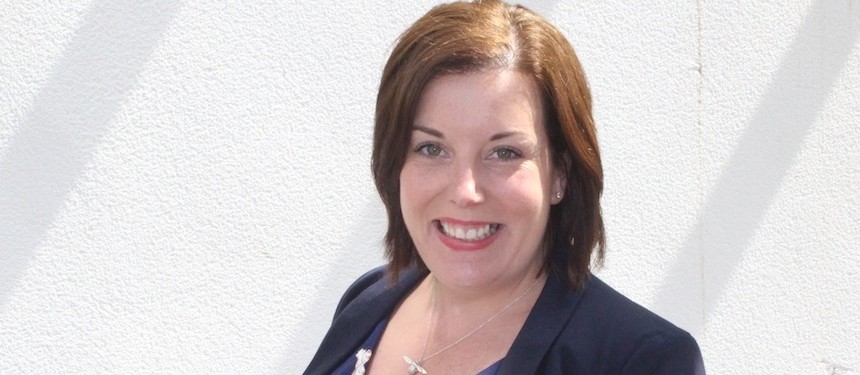SM: We are a charity. The way we are funded is by application fees from the applicant and then when they are placed and enrol at a university, the university pays capitation fees. Any profits we generate tend to be through the UCAS Media service, and these are put back and regenerated back into the business.
News and business analysis for Professionals in International Education
Have some pie!
Sally Mansell, Head of International Strategy, UCAS

The PIE: So can you tell me more about the UCAS Media service?
SM: They offer various solutions to realise institutions’ recruitment campaigns. If a university wanted to target specific students from specific regions, they are able to geo-target adverts and access a whole wealth of statistical information for that region.
“Applications from non-EU students to highest tariff-tier universities were up by 11% on the last cycle”
We also have products and services such as our Application Tracker. We have over 3,5000 UCAS centres overseas, and we have a product which HEIs get as part of being a UCAS member that allows them to track how many applications these centres have sent through to the UK, with various levels of information available.
The PIE: Can you tell me more about your 3,500 UCAS centres overseas
SM: They’re ordinarily international schools or local schools, so it’s normally a careers advisor within the school. It could be a local agency.
The PIE: So essentially members can get granular information about who is applying and from where?
SM: Absolutely. And the difference is that HESA data is quite old by the time it comes to market. We don’t provide current cycle information but we do produce an end-of-cycle report. We do lot of analysis in terms of student decision making, for example, what kind of tariff institutions students are applying to so we can plot trends.
For example, applications from non-EU students to highest tariff-tier universities were up by 11% on the last cycle.
And we can see which regions are showing the best growth in demand (such as southeast Asia) and when in the year applications are made.
The PIE: Another question about the UCAS Media service – how exactly can institutions students target international students by country?
SM: It’s through the application process, student applicants have an opportunity to say they would like to receive information from UK universities that we support. We’re very careful that they only get a certain amount of information in a certain timeframe. So it’s the ability to target current applicants, to give them as much information as possible.
“A lot of what UCAS does isn’t just the application process, it’s the information and advice service”
Obviously during clearing time a lot of applicants are left unplaced [should they fail to meet entrance criteria to their selected institutions]. A lot of what UCAS does isn’t just the application process, it’s the information and advice service, which starts at UCAS.com/coursesearch.
The PIE: Lastly, please tell me more about your international conference?
SM: Every year UCAS runs an international conference, aimed predominantly at the advisor market. These are people located in UCAS centres overseas.
They have a very important relationship with students, helping them make the right choices about the right universities. We provide a conference to allow them get up-to-date information about process but also about what’s going on in the international landscape in the UK. Normally it is chaired by Dominic Scott from UKCISA and we also have HEI participation – in terms of enabling them to impart their knowledge of the selection process.
We also have networking event between international officers and advisors so they can make their own relationships between schools and universities.
The PIE: And in October you are also staging an event with Universities UK?
SM: Yes it’s the first time we’ve done it. UUK and UCAS are holding a joint conference at the end of October to produce a platform for discussion on transnational education (TNE) opportunities. We aim to produce what we hope is a fairly innovative programme for senior HEI delegates.
The PIE: So TNE is an area you are looking at with regards to your new agenda?
SM: Certainly it’s come out in terms of the consultation. We have to be reactive to what our members are doing. If universities are teaching internationally we need to be able to support them in that activity. Specifically branch campuses, we are looking at how we can support our universities better. There are 25 universities with IBCs and more in the pipeline.
We are assessing whether it’s needed that there is an admissions service for UK overseas branch campuses, or whether it’s a service we could offer universities to list such opportunities on our course search.
Still looking? Find by category:


